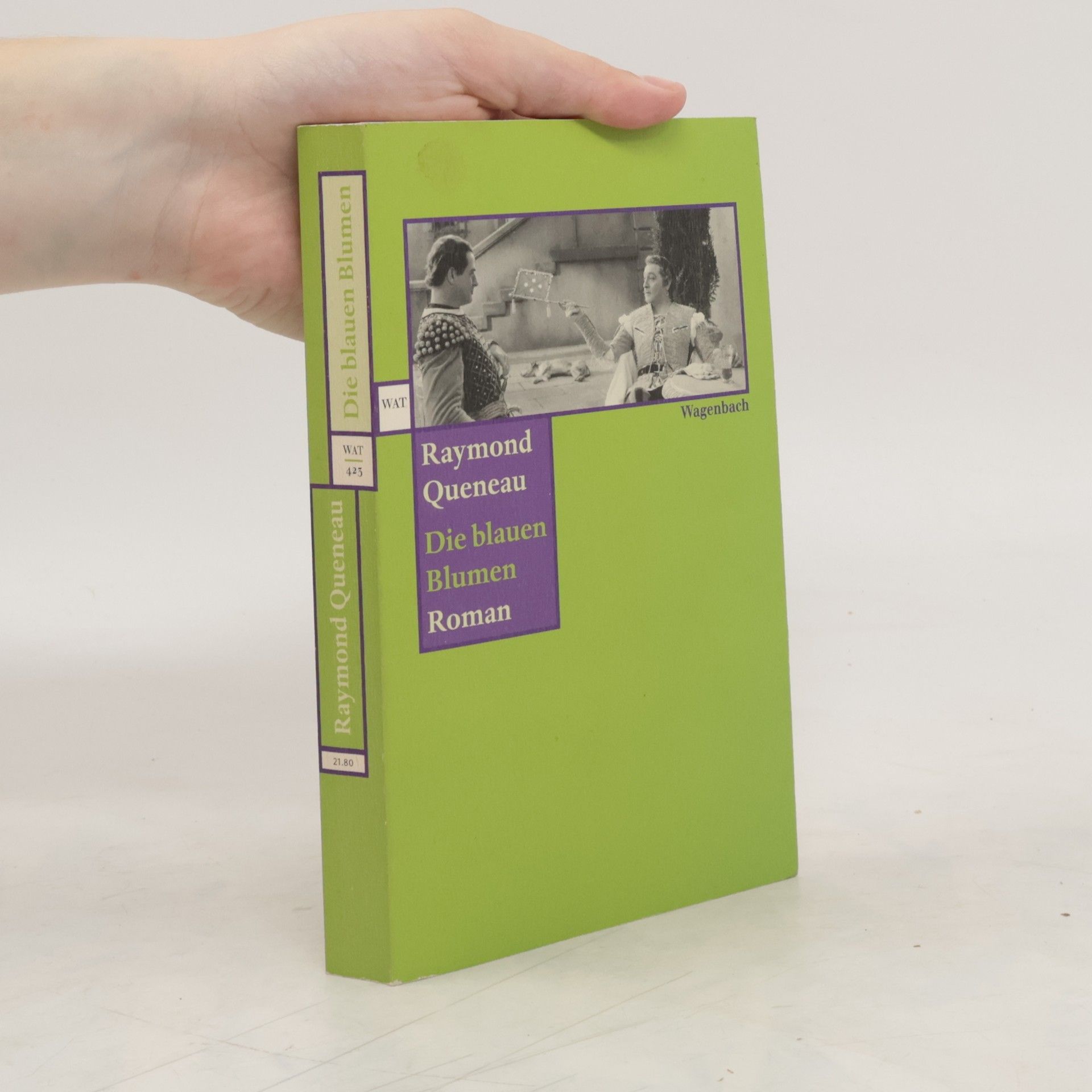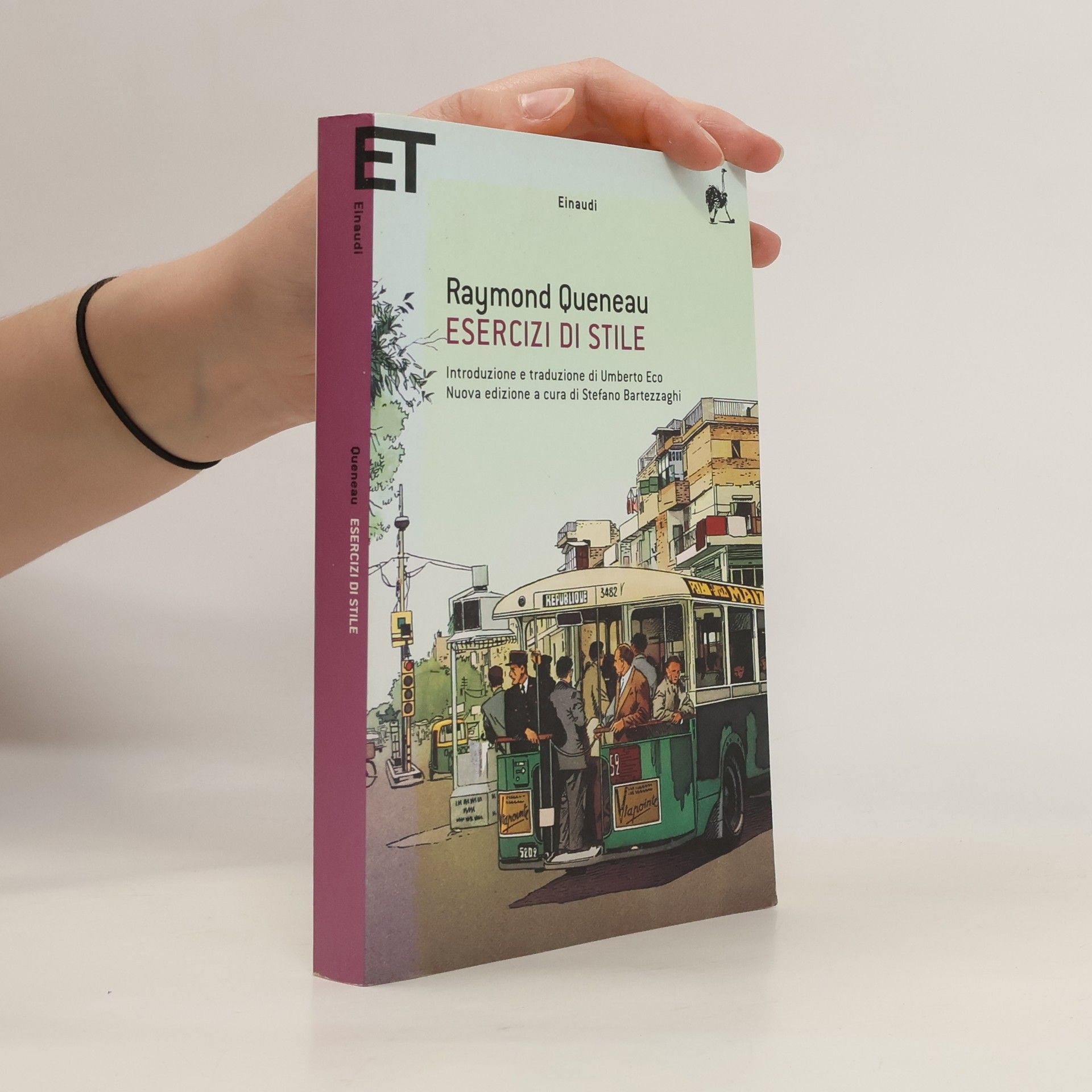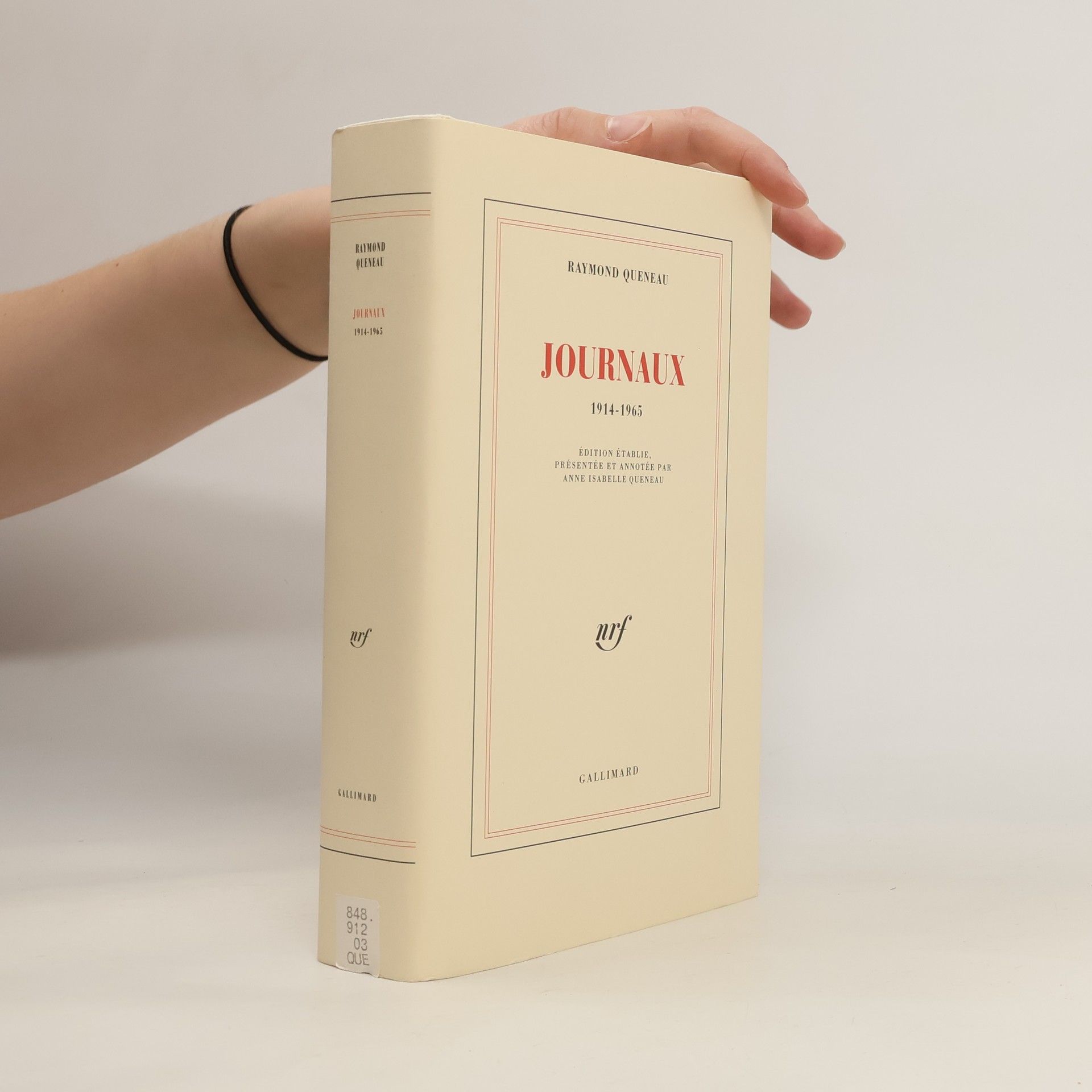Raymond Queneau Libros
Raymond Queneau, novelista, poeta y crítico, es célebre por sus obras deliberadas que transmiten una impresión de espontaneidad. Sus textos son productos conscientes de la mente, la memoria y la intencionalidad del autor, en contraste con la búsqueda surrealista de una expresión inconsciente pura. Queneau prestó meticulosa atención al detalle, incluso en la composición estructural de sus libros, demostrando un enfoque preciso en su oficio. Su producción literaria está cuidadosamente construida e intencionada.

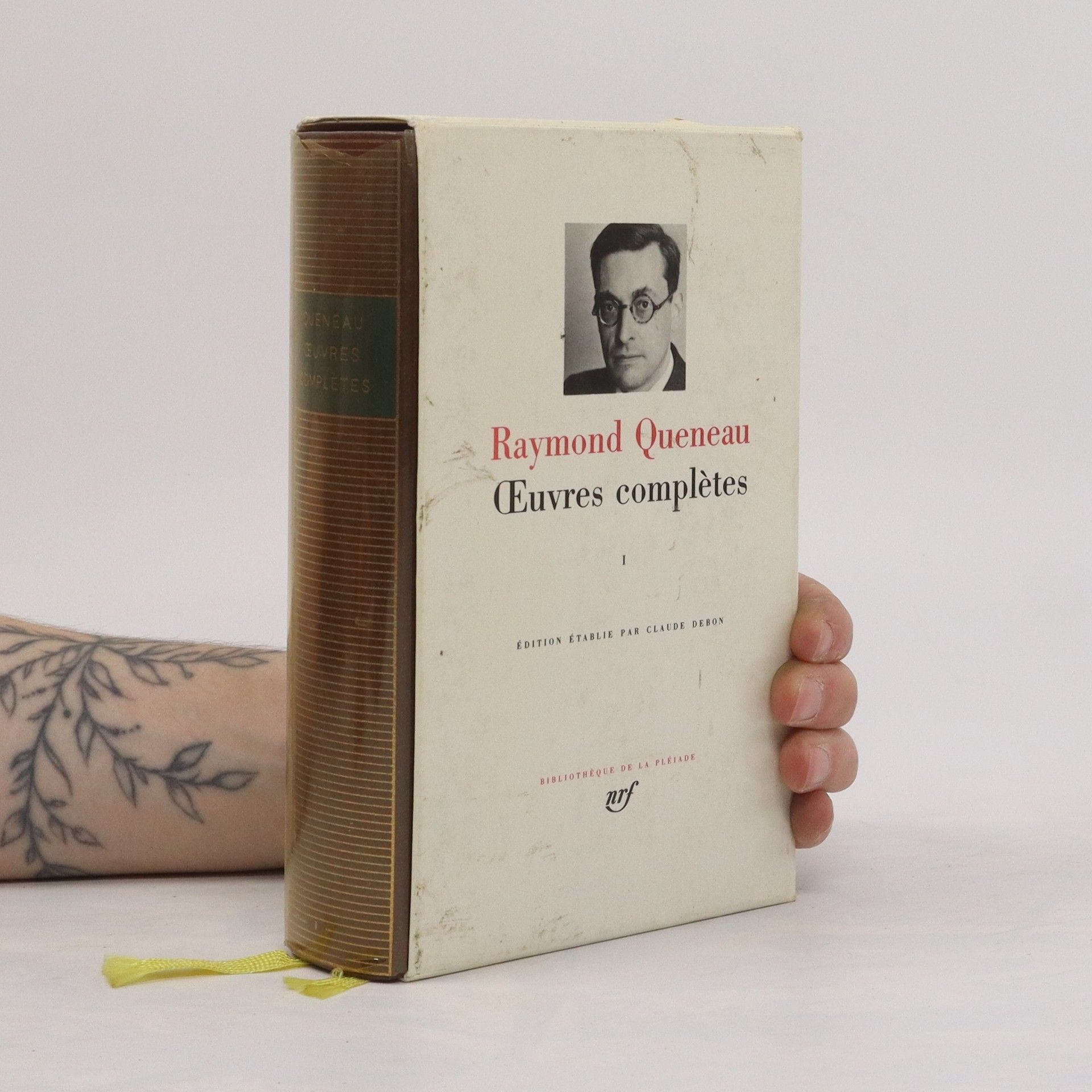
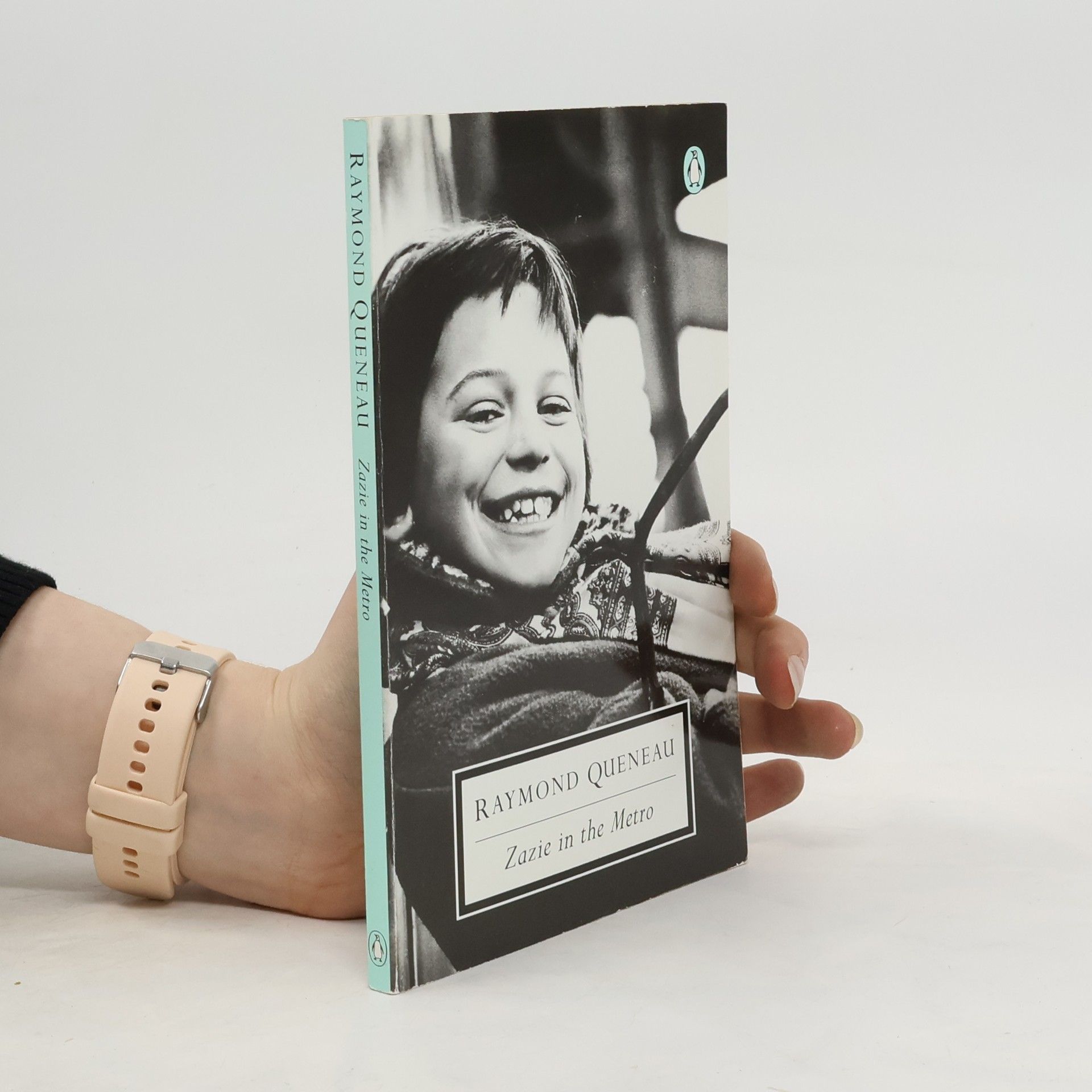




Exercises in Style
- 128 páginas
- 5 horas de lectura
On a crowded bus at midday, the narrator observes one man accusing another of jostling him deliberately. When a seat is vacated, the first man takes it. Later, in another part of town, the man is spotted again, while being advised by a friend to have another button sewn onto his overcoat. Exercises in Style retells this apparently unremarkable tale ninety-nine times, employing a variety of styles, ranging from sonnet to cockney to mathematical formula. Too funny to be merely a pedantic thesis, this virtuoso set of themes and variations is a linguistic rust-remover, a guide to literary forms and a demonstration of imagery and inventiveness.
The sunday of life
- 224 páginas
- 8 horas de lectura
A very funny book with great charm. The Times..This first English translation of The Sunday of Life is excellent. The Financial Times
Pierrot Mon Ami, considered by many to be one of Raymond Queneau's finest achievements, is a quirky coming-of-age novel concerning a young man's initiation into a world filled with deceit, fraud, and manipulation. From his short-lived job at a Paris amusement park where he helps to raise women's skirts to the delight of an unruly audience, to his frustrated and unsuccessful love of Yvonne, to his failed assignment to care for the tomb of the shadowy Prince Luigi of Poldevia, Pierrot stumbles about, nearly immune to the effects of duplicity. This "innocent" implies how his story, at almost every turn, undermines, upsets, and plays upon our expectations, leaving us with more questions than answers, and doing so in a gloriously skewed style (admirably re-created by Barbara Wright, Queneau's principle translator).
A metro strike sends country-girl Zazie on a crazy Parisian adventure in this comic cult classic Impish, foul-mouthed Zazie arrives in Paris from the country to stay with her uncle Gabriel. All she really wants to do is ride the metro, but finding it shut because of a strike, Zazie looks for other means of amusement and is soon caught up in a comic adventure that becomes wilder and more manic by the minute. Queneau's cult classic was made into a hugely successful film by Louis Malle in 1960. Packed full of word play and phonetic games, Zazie in the Metro remains as stylish and witty today as it did back then.
Mézalor, mézalor, késkon nobtyin ?On obtient cent mille milliards de poèmes (mais pas les vies pour les lire), et les autres, qu'on connaissait déjà et qu'on va pouvoir relire avec ce qui nous reste de vie, et aussi trois cents poèmes inédits - que, forcément, on ignorait - et puis des chansons, et aussi des souvenirs, avec - pour couronner le tout - quelques étonnants textes surréalistes. On le peut dire autrement : ce volume procure l'ensemble de la poésie publiée par Raymond Queneau, à quoi on a ajouté tous les poèmes épars publiés en revues et ceux que - les jugeant, pour diverses raisons, impropres à la publication - il avait conservés dans ses cartons. À cet ensemble, on a adjoint quelques textes - difficilement classables - qui, à un titre ou à un autre, relèvent de la fonction poétique. Ajoutons qu'on trouvera dans l'appareil critique de nombreux extraits du Journal, en grande partie inédit, de Raymond Queneau.
Die blauen Blumen. Roman. Aus d. Französ. v. Eugen Helmle
- 237 páginas
- 9 horas de lectura
Der Herzog Joachim von 1264 und der moderne Cidrolin, ebenfalls Joachim, leben in völlig unterschiedlichen Welten. Während der Herzog ein aktiver Kämpfer ist, genießt Cidrolin das süße Nichtstun. Ihre Schicksale scheinen miteinander verwoben zu sein, was Fragen über Identität und Traum aufwirft.
Intimes Tagebuch der Sally Mara
Man ist immer zu gut zu den Frauen
Sally Maras Vater ging beim Streichholzkauf verloren, ihre Mutter glaubt, die Kinder kämen vom Heiraten, Joel, ihr Bruder, säuft wie ein Loch. Stets sagt die gelehrige Sprachschülerin Sally das Unpassende und trifft so meist den Nagel (und andere Dinge) auf den Kopf. Mitglied diverser irischer Wrestlingverbände, verprügelt sie mit Vorliebe den Museumswärter und leckt begierig an Herkules' Alabasterwaden. Dem Geheimnis der sich fortpflanzenden Tierwelt dicht auf den Fersen, versucht sie immer "schön bei der Stange zu bleiben".§
Esercizi di stile. Testo francese a fronte
- 319 páginas
- 12 horas de lectura
